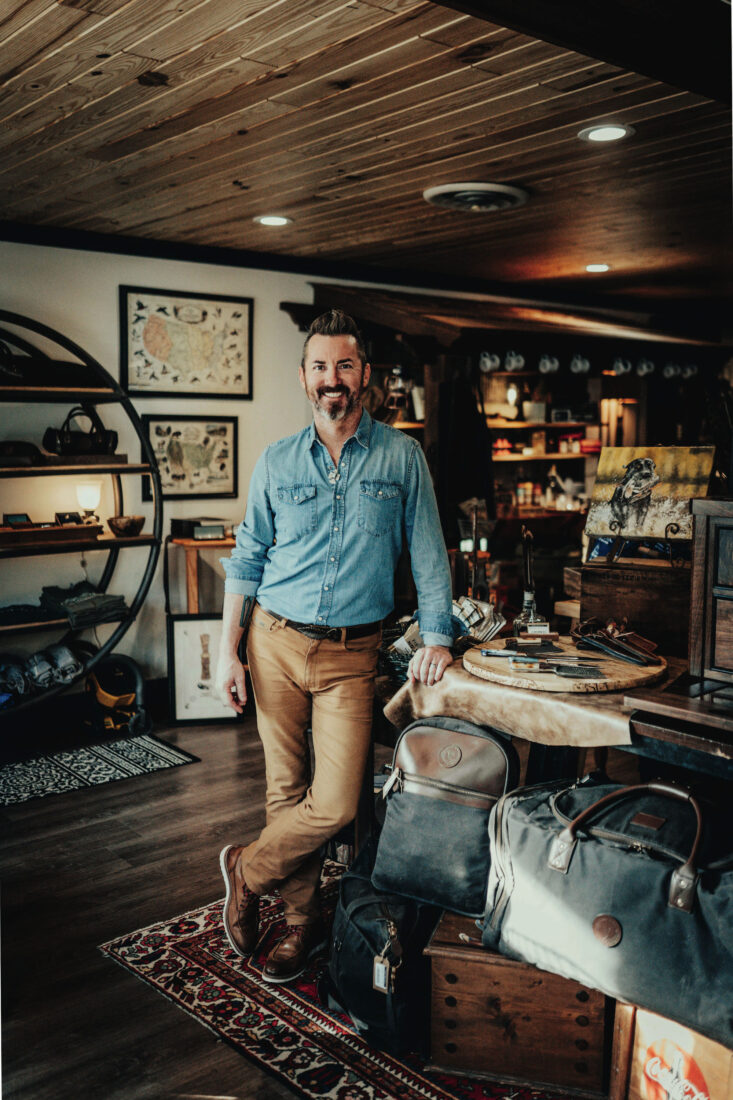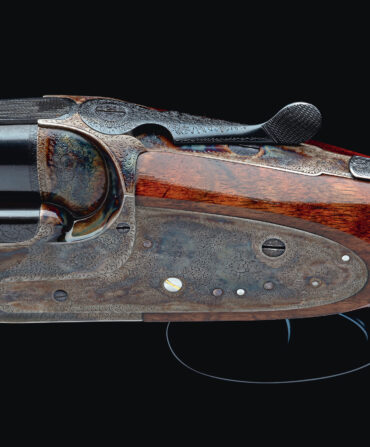There’s a lot to catch your eye with a duck call hand turned by the custom call maker Josh Raggio. The Mississippi artisan crafts calls from gorgeous horse chestnut burl, cocobolo, African blackwood, and other grade A woods from around the world. He can checker the call in the manner of a fine double gun, add a decorative band, or even use a guitar string to score delicate burn lines that encircle the call. Even if you don’t know the first thing about calling a duck, there is something sinuous and sexy and viscerally appealing about a Raggio call.
The irony: Very little of that matters to a duck. While the shape of a call and its material will affect its sound, most of what makes a duck call sound ducky is hidden from view, deep in the belly of the call, in the part called the insert. That’s where the reed and the tone board work together to create a bit of auditory magic. That’s where changes of a single hair’s width in the precise size of the reed, or the depth of the tone board’s sound channel, or the placement and footprint of the cork wedge that holds it all together, can alter the sound of a duck call dramatically.
“That’s the hurdle in the duck-call-making world,” Raggio says. “Crafting your own tone board is how you earn respect. It took me six months and thirty-seven different inserts before I finally hit on the right combination.”
That combination has earned Raggio respect by the pile. He makes some four hundred custom calls a year, priced from six hundred dollars to better than five grand apiece; at present, he has a two-year waiting list. He hauls a unique mobile call-making shop in a trailer to duck clubs and sporting shows in order to produce on-the-spot custom calls. This past September, he opened Raggio Mercantile, a new workshop and high-end sporting lifestyle shop in the historic downtown of his native Raymond, Mississippi. There, large windows allow shoppers to see Raggio turning wood for calls and fine-tuning reeds. And for the first time, he’s making a line of CNC-machined acrylic production calls—all built around the lines of what he deems the single best duck call he hand produced over nine years—for a more price-conscious clientele.
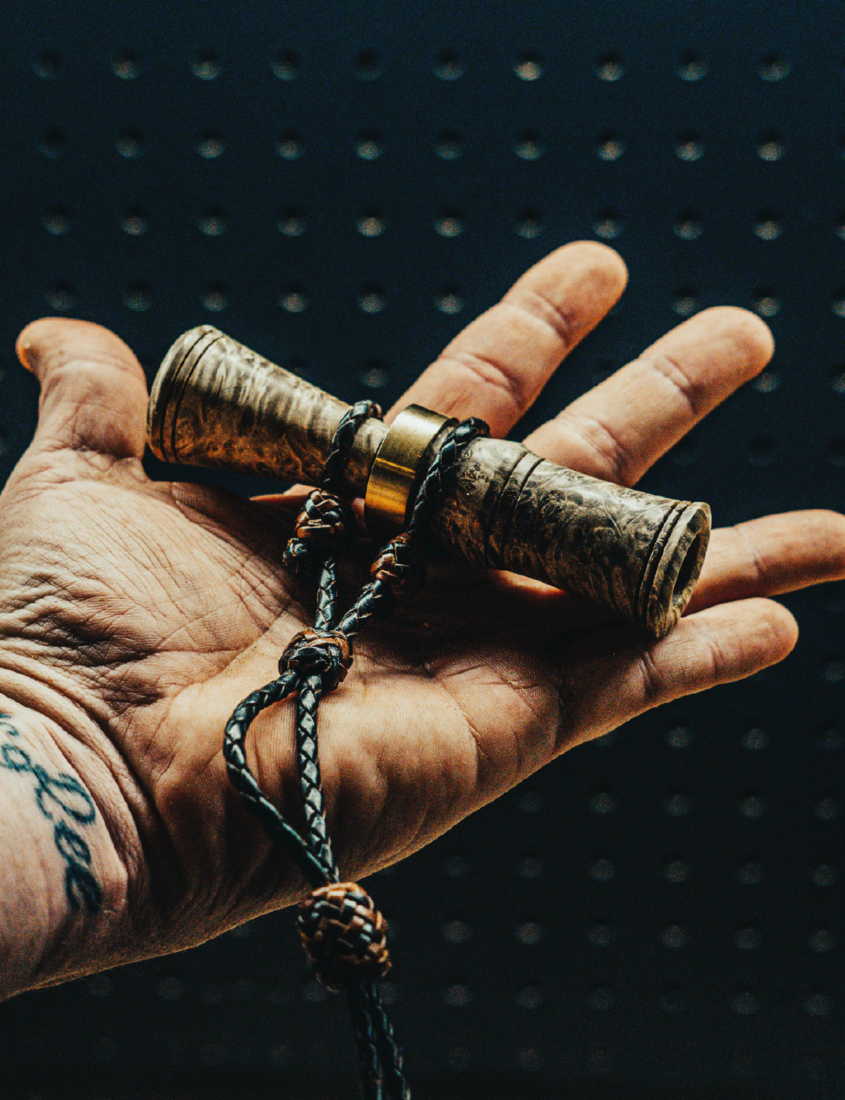
Growing up, Raggio tagged along with his father on duck hunts and listened to him blowing a duck call in the field, at the house, wherever he traveled. His father carried a duck call in his pocket year-round, Raggio says, “like some people carry a pocketknife. He blew it all the time.” For his father’s fortieth birthday, Raggio’s mother gave him a trip to Stuttgart, Arkansas, to watch the famed World’s Championship Duck Calling Contest. Josh, twelve years old at the time, went with him. Inspired, his father went on to place second in the Mississippi state duck-calling championship five times and to direct the state calling championship. His son has had even better luck on the contest circuit: He placed first in the 2009 Mississippi state duck-calling championship, which qualified him to blow in that year’s world championships in Stuttgart. And he’s won numerous hunter-style “meat calling” contests.
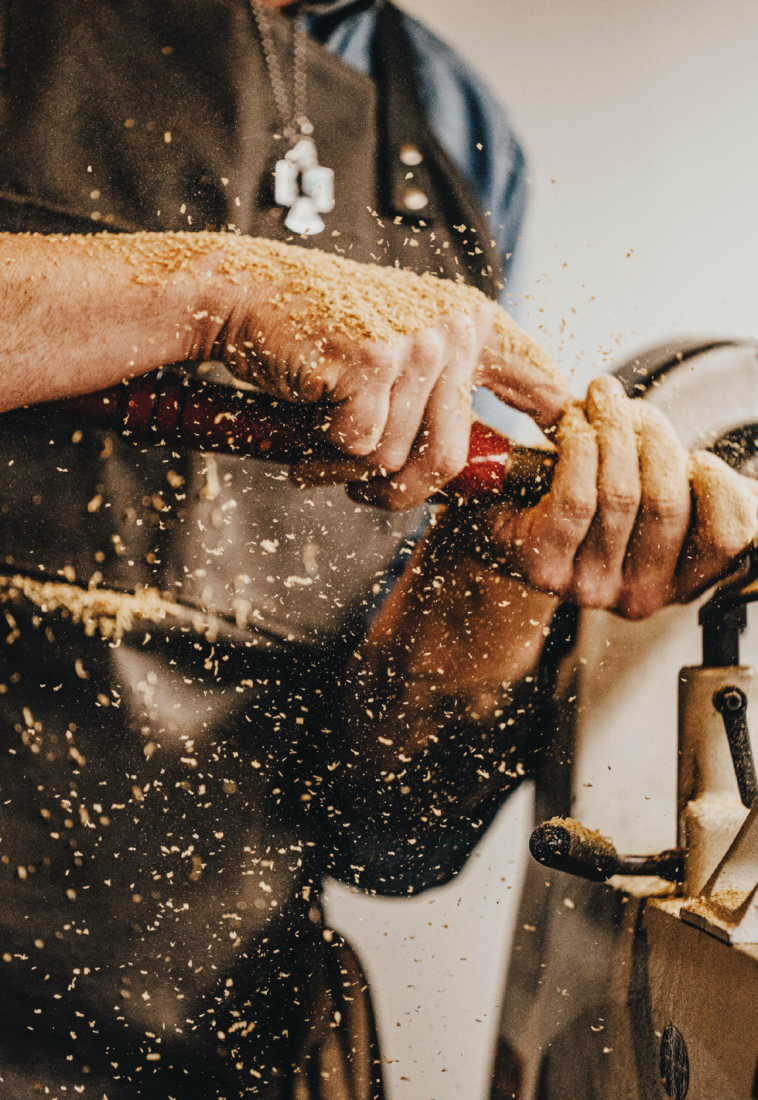
In 2010, a friend who made duck calls asked if Raggio would come to his shop and critique his work, and when Raggio walked in, he was transfixed. The sawdust, the smell of worked wood, and the lathe chisels with handles stained with sweat “stirred a deeper appreciation for a hand-made duck call,” he says. In 2013, he started turning wood. “I was so ignorant to how everything worked,” he says, laughing, “that I didn’t even know how to turn on the dadgum lathe.” But Raggio knew what a duck sounded like, and how to tease the raspy tones of a bossy mallard hen out of wood. The next year, one of his calls placed in the top five at the world championship in Easton, Maryland. (That same year he was also a finalist in Garden & Gun’s Made in the South Awards.)
In 2018, Raggio walked away from his job selling heavy equipment and made the leap into crafting duck calls full-time. At that point, the custom-call-making world “was a pretty closed community,” he recalls. “The old guys wouldn’t share a lot of information, and I just didn’t ask. It felt like one of those things I needed to learn on my own.”
Building a custom tone board is an exercise in trial and error. After cutting out the rough shape of a tone board and a reed, Raggio would blow the call, disassemble it, sand a small area, put the call back together, and blow again. At the time he had a newborn in the house, so he would sit in his truck parked in the driveway to test the calls without waking up the baby. “In and out and in and out,” he says, laughing. “Sand-file-blow. Sand-file-blow. I’m very goal oriented,” he explains. “When I set my mind to something, I’m going to die trying or get divorced.”
What Raggio has set his mind to most recently is to help Raymond establish itself as a hub of tourism and artistic energy. The hipper-by-the-minute town of Madison, Mississippi, just thirty miles northeast, is where everybody wants to be, Raggio says, and would be a perfect fit for his shop. Except Raggio is a Raymond boy. “I’m pretty committed to my hometown,” he says. “I had a fantastic experience at Raymond High School. And the way I am, if somewhere is where everybody wants to be, that’s where I don’t want to be.”
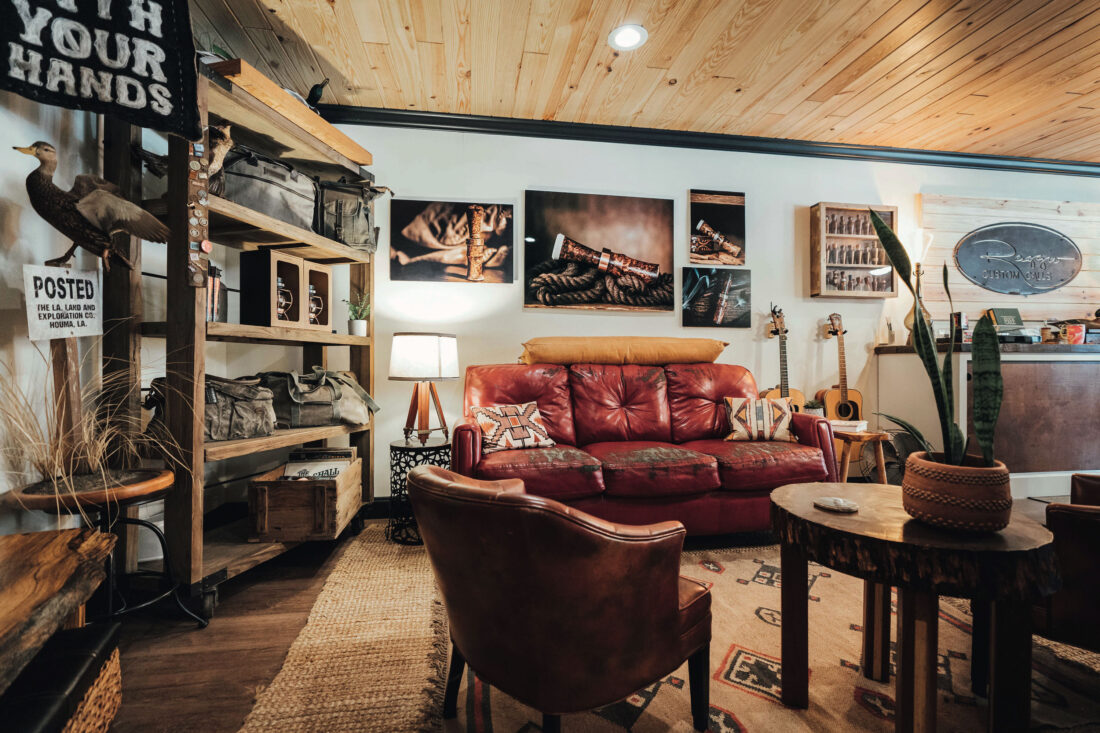
Raymond is almost two hundred years old. An up-and-coming arts haven, it sits three miles off the Natchez Trace Parkway. The old railroad depot houses a vinyl record store. There’s a stained-glass art gallery, an antique shop, an event space in a historic building on the town square—the Raymond—that hosts nearly seventy happenings a year, and a newly formed city arts council, for which Raggio sits on the board. It’s the kind of place where the local grocery store also has a full kitchen in which dishes are prepared in old cast-iron skillets, and Airbnbs are opening in buildings from the 1800s.
Raggio Mercantile is located in an old drugstore building, on a corner overlooking the square. Raggio acquired the building last year and commenced a seven-month-long build-out for the shop and store. In addition to his calls, he carries canvas oil paintings, pieces from local woodworkers, leather goods, custom knives, and handmade custom felt hats.
It’s a place where he can move seamlessly from the wood lathe to the store floor and back again, answering questions about how to build back pressure when blowing a duck call and where to go for the best breakfast in town. Through the large storefront windows, the Raymond water tower soars over the square. It’s a place that makes you want to put your feet up. A place where you can hear a duck call nearly every day of the year. For Raggio, it’s just like home.
T. Edward Nickens is a contributing editor for Garden & Gun and cohost of The Wild South podcast. He’s also an editor at large for Field & Stream and a contributing editor for Ducks Unlimited. He splits time between Raleigh and Morehead City, North Carolina, with one wife, two dogs, a part-time cat, eleven fly rods, three canoes, two powerboats, and an indeterminate number of duck and goose decoys. Follow @enickens on Instagram.


